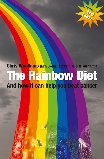Prostate cancer recurrence
A new study from Duke University Medical School and published October 10th online in Cancer Epidemiology, Biomarkers & Prevention has linked high triglyceride levels with the recurrence of prostate cancer.
Amongst men who had surgery for prostate cancer, those with elevated triglyceride levels before surgery were 35% more likely to exhibit prostate cancer recurrence, than men with normal pre-surgery levels. The research avoided all males taking statins so as not to bias the study.
Researchers studied the records of men at six Veterans Affairs hospitals in California, Georgia and North Carolina. After surgery, 293 of the 843 men in the research still had a rising PSA level.
Bad Cholesterol Matters
When the researchers followed the 325 men with abnormally high preoperative cholesterol levels, they found the risk of recurrence increased 9% for each 10 mg/dL in total cholesterol above the abnormal cutoff of 200 mg/dL.
But, when they looked at ‘good’ HDL levels they found that risk decreased as ‘good’ HDL increased. For every extra 10 mg/dL of HDL the risk of recurrence fell by 39%, until the ‘desired healthy’ level of 40 mg/dL was achieved.
Yet again this highlights the error in constantly lumping all cholesterol together under one banner and treating it as some generic bad guy.
Bad cholesterol can increase through eating fatty meats, cheeses and cows’ dairy in general. Fat deposits are linked to sugar consumption. Good cholesterol increases by consuming extra virgin olive oil, nuts and seeds like walnut oil, walnuts, flaxseed, almonds. Indeed, we have covered research in Cancer Watch showing that people who eat raw nuts daily get less prostate cancer.
Go to: Saturated fat and cancer risk
Lead researcher Emma Allott from Duke University Medical School in Durham, North Carolina told Reuters Health. “Our findings suggest that controlling lipid levels is not only important for cardiovascular disease but also may have a role in prostate cancer.”
Men who have had prostate surgery should consider following our book the Rainbow Diet - and how it can help you beat cancer, which focuses on high levels of good fats (olive oil, seed and nut oils - like flaxseed, sunflower, pumpkin and walnut, fish oils), lowered animal protein and high levels of colourful vegetables (including polyphenol compounds like curcumin, pomegranate, EGCG in green tea, carotenoids in red and yellow peppers, anthocyanins in beetroot, dark red plums and cherries, and sulphoraphanes (sulforaphanes) in broccoli, kale and other green vegetables).
Also, certain gut bacteria are known to form short chain esters which limit the formation of bad cholesterol; taking a daily probiotic might help in this area.
SOURCE: http://bit.ly/1ngr3Wt

The Rainbow Diet – click here to read a review of the book